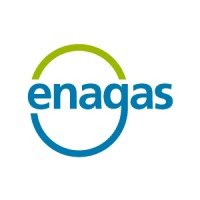Hyundai Oilbank enhances its hydrogen portfolio
Hyundai Oilbank plans to reduce its sales share of the oil refinery business to 40% by 2030 from the current 85%.

Hyundai Oilbank today (10 May) has entered the hydrogen power generation market by signing a memorandum of understanding (MoU) with Korea South-East Power to develop new renewable energy projects jointly.
Both partners plan to jointly work on a renewable energy power generation project using hydrogen fuel cells. Hyundai Oilbank will be responsible for supplying hydrogen, and Korea South-East Power will produce electricity.
The electricity will be supplied to buyers selected based on the ‘Hydrogen Power Generation Compulsory System’. The Korean government will separate the mandatory hydrogen power generation system by 2022 from the ‘renewable energy supply mandatory system’.
The government expect that the domestic hydrogen fuel cell power generation capacity will reach 8 GW by 2040, from the current 650 MW, with the market size reaching 7 trillion won.
Hyundai Oilbank handles around 100k tonnes/year of hydrogen for end-use applications such as crude oil refining and natural gas. It plans to produce and sell 100,000 tonnes of blue hydrogen by 2025. Korea South-East Power introduced fuel cell power generation among domestic power generation companies in 2006 and has abundant renewable energy resources.
Earlier, in March, Hyundai Heavy Industries Group announced the ‘Hydrogen Dream 2030 Roadmap’, a plan to build a hydrogen value chain from production to transportation, storage, and utilisation of hydrogen on land and offshore.
Hyundai Oilbank also signed an MoU with Air Products in April this year for the use of hydrogen energy. The two companies will also collaborate on developing a green hydrogen business model.
Moreover, early this month, Hyundai Heavy Industries joined nine partners, including Ulsan City, Ulsan Techno Park, Ulsan Chamber of Commerce, Korea Petroleum Corporation, SK Gas, Korea East-West Power, Sejin Heavy Industries, and Ulsan Institute of Science and Technology (UNIST) for building 100 MW green hydrogen production demonstration facility using wind power.
